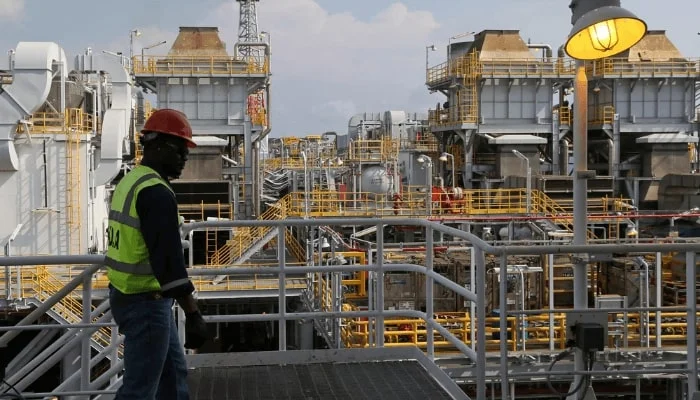Nigeria’s oil sector is poised for a major leap, with the Nigerian Upstream Petroleum Regulatory Commission (NUPRC) forecasting a 600,000 barrels per day (bpd) increase in crude oil output.
Driven by fresh investments, this could push daily production to 1.89 million barrels, up from 1.39 million in September 2025. The surge underscores Nigeria’s ambition to solidify its role as a global energy leader.
NUPRC Chief Executive Gbenga Komolafe shared these projections at the 2025 World Energies Summit in London, hosted by Frontier Energy Network. He highlighted how bold reforms are unlocking resources and attracting global capital.
New Field Plans Fuel Growth
In 2025, the NUPRC approved 28 Field Development Plans, set to deliver 600,000 bpd of oil and over 2 billion cubic feet of gas daily.
These projects tap 1.4 billion barrels of oil and 5.4 trillion cubic feet of gas reserves, backed by $18.2 billion in investments. This momentum signals a thriving upstream sector.
Komolafe noted the government’s focus on turning challenges into opportunities. “These efforts show Nigeria’s oil industry is growing and drawing the funds needed to remain a top energy hub,” he said. He invited investors to join the upcoming Block Licensing Round.
Reforms Boost Investor Trust
Recent licensing rounds, including the 2022 Petroleum Prospecting Licences, deep offshore Mini-Bid, and 2024 round, won praise for transparency.
Rig activity soared from 8 in 2021 to 70 now, with 41 drilling on-site. Oil output climbed from 1.46 million bpd in October 2024 to nearly 1.8 million today.
Major deals, like the $5 billion Bonga North and $500 million Ubeta Gas Project, show strong investor confidence. More such decisions are expected, further boosting the sector.
Energy Transition and Reforms
Komolafe emphasized energy security for Africa, aligning with Nigeria’s Decade of Gas strategy. The 2021 Petroleum Industry Act (PIA) brought clarity through fiscal reforms and investor-friendly policies. It focuses on transparency, sustainability, and competitiveness to build trust.
Created under the PIA, the NUPRC issued 24 regulations meeting global standards. Three 2024 Executive Orders added incentives.
For a fair energy transition, a Decarbonisation Framework includes monitoring systems, carbon storage, and market access.
The PIA’s host community provisions have built trust, enabling smoother operations. Investors now access both mature and frontier basins with attractive terms.
Major Investments Signal Bright Future
Shell’s $2 billion HI Field gas project marks Nigeria’s second major gas investment in 18 months, pushing total upstream commitments past $8 billion since 2023. These wins reflect stable policies under the current administration.
With sights on 2.1 million bpd overall, Nigeria balances oil growth with gas and sustainability goals. Komolafe urged partners to join the next licensing round, promising shared success.
Nigeria’s upstream surge positions it as a key global energy player. By blending bold reforms with strategic investments, the nation is paving a path to long-term prosperity.






